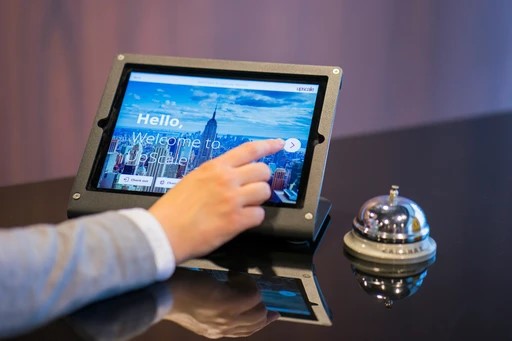Hotels and Resorts
Xina AI empowers hotel guests to effortlessly order room service and request housekeeping items through natural speech. Customers can access information on amenities and locations with accuracy.
Xina streamlines hotel operations, ensuring orders are always correct and promptly attended to, enhancing the guest experience.
Hotels and Resorts
Xina AI empowers hotel guests to effortlessly order room service and request housekeeping items through natural speech. Customers can access information on amenities and locations with accuracy.
Xina streamlines hotel operations, ensuring orders are always correct and promptly attended to, enhancing the guest experience.
Hotel Room Service Voice Ordering
Xina AI allows hotel guests to instantly order room service by speaking naturally to Xina. Customers can request housekeeping items and services, just by speaking to Xina. If customers need information on amenities, locations, etc., Xina is there with the right answer every time. For hotels and resorts, Xina eliminates employees standing by to answer room service and housekeeping calls; and she always gets the order right.

In Room Dining
In-room dining voice assistant streamlines meal ordering directly from rooms. Guests use natural language to place orders and receive real-time updates. Integrated with hotel systems, orders can be charged to rooms effortlessly. The assistant also provides menu information and nearby dining options, enhancing convenience. This feature reflects the hotel’s commitment to modern hospitality, simplifying dining experiences and catering to diverse guest needs.

In Room Dining
In-room dining voice assistant streamlines meal ordering directly from rooms. Guests use natural language to place orders and receive real-time updates. Integrated with hotel systems, orders can be charged to rooms effortlessly. The assistant also provides menu information and nearby dining options, enhancing convenience. This feature reflects the hotel’s commitment to modern hospitality, simplifying dining experiences and catering to diverse guest needs.
Pool and Beach Dining
A voice assistant for beach and pool-side food & drink ordering at hotels revolutionizes guest experiences. Guests can seamlessly place orders for refreshments and meals using natural language, eliminating the need to leave their lounging areas. This innovative feature reflects the hotel’s dedication to modern hospitality, ensuring guests enjoy personalized service and relaxation without interruptions.


Pool and Beach Dining
A voice assistant for beach and pool-side food & drink ordering at hotels revolutionizes guest experiences. Guests can seamlessly place orders for refreshments and meals using natural language, eliminating the need to leave their lounging areas. This innovative feature reflects the hotel’s dedication to modern hospitality, ensuring guests enjoy personalized service and relaxation without interruptions.

Housekeeping Requests
A voice assistant for hotel housekeeping requests enables guests to effortlessly communicate their needs. Xina integrates with hotel systems for a range of commands for requesting room cleaning, fresh towels, amenities, and more. It offers seamless interaction, enhancing guest experience and operational efficiency.

Housekeeping Requests
A voice assistant for hotel housekeeping requests enables guests to effortlessly communicate their needs. Xina integrates with hotel systems for a range of commands for requesting room cleaning, fresh towels, amenities, and more. It offers seamless interaction, enhancing guest experience and operational efficiency.
Concierge Q&A
Xina AI enhances guest experiences in hotels by providing personalized recommendations, handling reservations, and offering information about amenities, local attractions, and transportation. Through natural language processing, the chatbot engages in efficient conversations with guests, saving time and reducing staff workload. Equipped with machine learning, it continually improves responses based on user interactions, streamlining interactions and enhancing overall guest satisfaction.


Concierge Q&A
Xina AI enhances guest experiences in hotels by providing personalized recommendations, handling reservations, and offering information about amenities, local attractions, and transportation. Through natural language processing, the chatbot engages in efficient conversations with guests, saving time and reducing staff workload. Equipped with machine learning, it continually improves responses based on user interactions, streamlining interactions and enhancing overall guest satisfaction.

